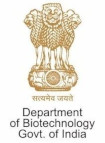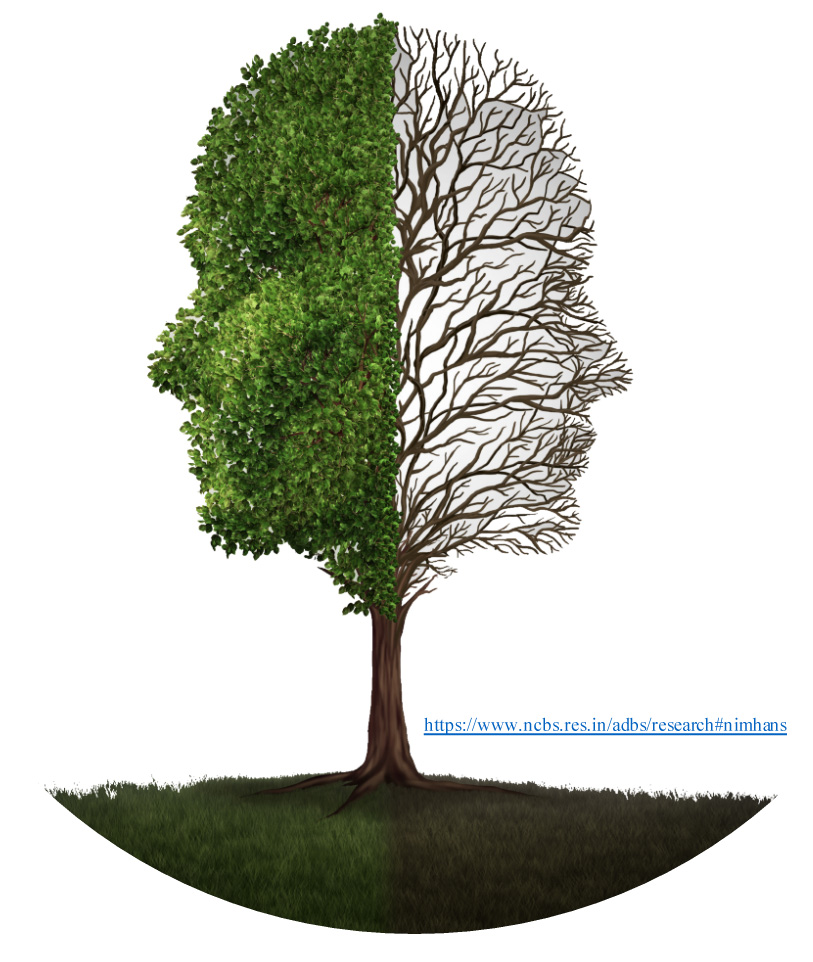Adverse Childhood Experiences (ACEs) are distressing experiences that occur during early life, and may have far reaching consequences impacting adulthood. These experiences include various forms of abuse and neglect, both physical and/or emotional. In addition, they also include trauma experienced by communities such as war, terrorism, and other forms of community violence. Research in the domain of mental health have affirmed that psychiatric illnesses often run in families. While a part of this risk is determined by inherited factors, primarily genes; environmental factors also contribute a lot. ACEs are an important environmental factor in this regard.
The Accelerator Program for the Discovery of Brain Disorders using Stem cells (ADBS), a collaboration between the NIMHANS, DBT-inStem, and NCBS-TIFR, supported by the Department of Biotechnology, seeks to answer questions related to the biological and psychosocial basis of mental illness. As part of the project, teams led by Drs. Biju Viswanath and Jayant Mahadevan from NIMHANS studied individuals from families, enrolled in this program, where at least two individuals suffer from a major psychiatric illness like schizophrenia, bipolar disorder, obsessive compulsive disorder (OCD), substance use disorder (SUD) or Alzheimer’s dementia. The project included assessment and follow-up of individuals afflicted with any of these conditions, and unaffected family members who are at-risk to develop such illnesses.
A detailed study of structure and function of the brain using neuropsychological tests, magnetic resonance imaging (MRI), electrophysiology, eye movement tracking, infrared spectroscopy as well as blood tests for genetic and molecular markers were carried out. Many of these assessments would be repeated at two-year intervals, to understand disease progression and transitions to symptomatic state. In this particular analysis, the pattern of adverse childhood experiences that result in mental illness, especially the age at which individuals develop these problems was examined in individuals enrolled from the first phase of the ADBS clinical cohort.
The analysis is based on 509 individuals from 215 families with the study spanning a period of three years. Out of total cases, 268 were diagnosed to have an illness, while 241 were unaffected. “Interestingly, it was observed that adverse childhood experiences were associated with an earlier onset of major psychiatric conditions in men. In addition, there was a specific association with obsessive compulsive disorders and substance use disorders too. This association was not evident for conditions such as schizophrenia and bipolar disorder,” says Biju.
The findings of this clinical research work re-emphasise the important role that childhood adversity plays in the development of psychiatric illness over time. Further, it was noticed that the relationship of ACE and mental illness is more pronounced in obsessive compulsive disorder and substance use disorder. Such a relationship assumes even more significance for individuals from families with a history of mental illness, where there is already an inherited i.e. genetic risk.
Future work from this research team will explore the relationship between specific types of childhood adversity such as sexual abuse or domestic violence and the development of psychiatric illness. As this is a long term follow-up study, Biju and his team are hopeful that they will be able to examine the impact of adversity on the way the illness progresses, its severity, and response to treatment. According to co-corresponding author Jayant Mahedevan, “Since we have also conducted detailed investigations, including imaging and neuropsychology, we may be able to understand the pathways by which the impact of adversity may be mediated”.
“Overall, we were able to confirm the observations that the experience of adversity does interact with the risk of developing psychological problems, and often makes these manifest at a younger age. Our team will continue to work and try to understand the possible biological mechanisms by which childhood adversity may contribute to the development of mental illness”, said Biju and Jayant.
This is the largest study in India, till date, to have examined the relationship between ACEs and severe psychiatric illnesses in a systematic manner. Longitudinal assessments in first-degree relatives from these families are ongoing to unravel underlying mechanisms. Further work on critical timing of exposure, resilience and risk, and impacts on brain structure and function, as also genetics, would help us explore these issues in the future. This will help to identify those at risk with a greater degree of precision and provide targeted interventions that could potentially mitigate its impacts.
The study entitled ‘Adverse childhood experiences in families with multiple members diagnosed to have psychiatric illnesses’ has been published in The Australian & New Zealand Journal of Psychiatry (ANZJP). The authors of this scientific publication include five students enrolled for PhD, early career psychiatrists, psychiatric social workers and established senior psychiatrists.
Reference:
Adverse childhood experiences in families with multiple members diagnosed to have psychiatric illnesses
Amala Someshwar*, Bharath Holla*, Preeti Pansari Agarwal, Anza Thomas, Anand Jose, Boban Joseph, Birudu Raju, Hariprasad Karle, M Muthukumaran, Prabhath G Kodancha, Pramod Kumar, Preethi V Reddy, Ravi Kumar Nadella, Sanjay T Naik, Sayantanava Mitra, Sreenivasulu Mallappagiri, Vanteemar S Sreeraj, Srinivas Balachander, Suhas Ganesh, Pratima Murthy, Vivek Benegal, Janardhan YC Reddy, Sanjeev Jain, Jayant Mahadevan, Biju Viswanath, June 2020, The Australian & New Zealand Journal of Psychiatry (ANZJP)
https://journals.sagepub.com/doi/abs/10.1177/0004867420931157
Publication Date: June 15, 2020
Media coverage
The Times of India, June 30, 2020












